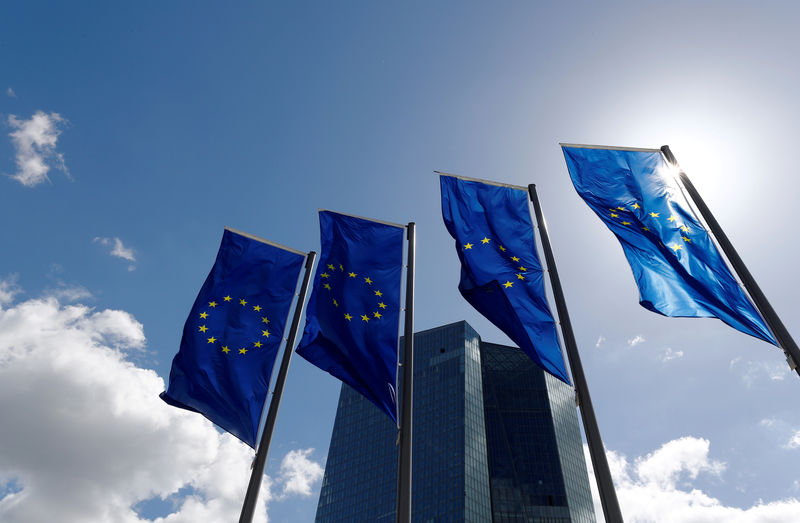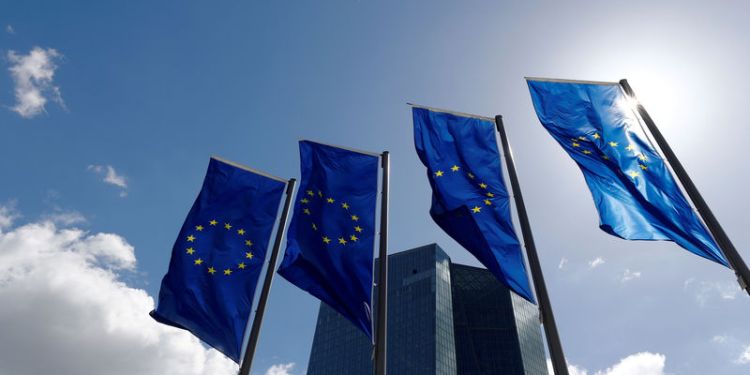 © Reuters. FILE PHOTO: European Union flags flutter outside the European Central Bank (ECB) headquarters in Frankfurt
© Reuters. FILE PHOTO: European Union flags flutter outside the European Central Bank (ECB) headquarters in FrankfurtBRUSSELS/FRANKFURT (Reuters) – Underlying price pressures dipped unexpectedly in the euro zone’s 19 countries this month, data that is likely to increase concern at European Central Bank (ECB) as it prepares to curb economic stimulus measures.
With much of its firepower exhausted, the ECB is slowly withdrawing support, hoping it has done enough to kick start growth and inflation, even if price pressures remain relatively muted.
Despite consumer prices picking up as expected to 2.1 percent in September, from 2 percent a month ago, the rate excluding the cost of food and energy fell to 1.1 percent from 1.2 percent, Eurostat data showed on Friday.
This not only missed market projections but also appears to challenge the ECB’s own view that core inflation would rise toward the end of the year, finally moving higher after being stuck near 1 percent since the middle of 2015.
An even narrower gauge watched by market economists, which excludes alcohol and tobacco costs, dipped to 0.9 percent from 1 percent, also well short of expectations.
The fact that a rise in employment and wages does not appear to be translating into underlying price pressures adds to the argument that slack in the economy may be bigger than was visible until now.
Another potential source of concern, as it opens the ECB to criticism from Germany, is that headline inflation has now been above the bank’s target for four straight months with oil prices threatening to push it even higher. Germany has been unhappy with loose monetary policy for years.
But the ECB is unlikely to tighten policy in response to an inflation rise fueled by energy costs, mostly because such increases tend to be temporary and also slow growth by reducing disposable incomes.
Indeed, the ECB went out of its way this week to stress that it would not speed up policy normalization. ECB chief Mario Draghi and chief economist, Peter Praet, both stressed that the support in place is needed to sustain the rise in inflation.
Economic growth is already slowing as headwinds from a global trade war, Brexit and an emerging market shakeout gather strength, suggesting that the bloc cannot afford much more blow back if it wants to stay on course to roll back stimulus.
The ECB plans to end a 2.6 trillion euro ($3 trillion) bond purchase scheme at the close of the year and sees its first rate hike sometime in the fourth quarter of next year.
While this policy path is conditional on inflation developments, policymakers have long said that it would take a major deviation from their baseline projections before they tweak these plans.
For details of Eurostat data click on:
http://ec.europa.eu/eurostat/news/news-releases
Fusion Media or anyone involved with Fusion Media will not accept any liability for loss or damage as a result of reliance on the information including data, quotes, charts and buy/sell signals contained within this website. Please be fully informed regarding the risks and costs associated with trading the financial markets, it is one of the riskiest investment forms possible.
Source: Investing.com






















